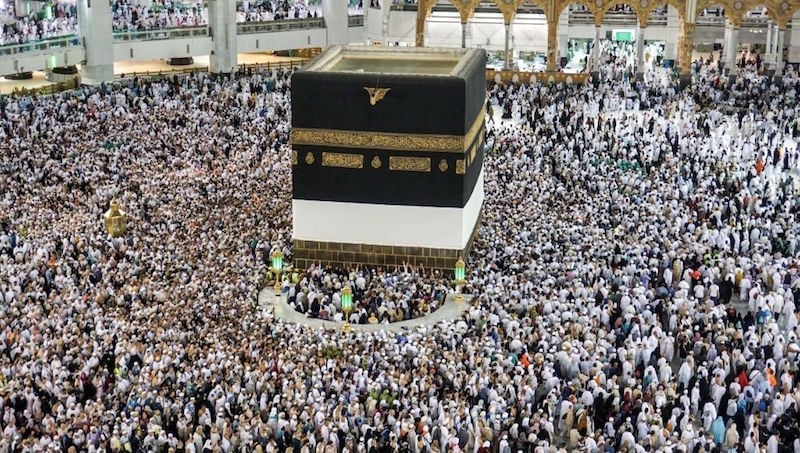Every year, millions of Muslims from around the world travel to Saudi Arabia for Hajj, one of the five pillars of Islam. It’s one of the biggest religious gatherings in the world, and making sure everything runs smoothly is a massive job. For Hajj 2025, Saudi Arabia is taking big steps to make the pilgrimage easier, safer, and more organized by using new digital tools and smart logistics.
The Ministry of Hajj and Umrah has already started preparing well in advance. The country is using digital innovations and smart technologies to improve everything from transportation and crowd management to accommodation and health services. These changes are part of Saudi Arabia’s larger plan, Vision 2030, which aims to modernize the country and provide top-quality services to pilgrims.
Using Technology to Improve the Pilgrim Experience
For Hajj 2025, the Saudi authorities are focusing on creating a more efficient and stress-free experience. This includes using artificial intelligence (AI), data tracking systems, mobile apps, and electronic IDs to help manage the massive crowds that arrive in Mecca and Medina each year.
One major tool is the “Nusuk” platform, a digital portal launched to help pilgrims plan their journey. Through Nusuk, pilgrims can book their flights, accommodations, transportation, and even manage their Hajj permits online. This platform aims to reduce confusion, long wait times, and paperwork.
There are also digital bracelets or smart IDs being introduced. These bracelets contain important information about the pilgrim such as their health history, ID number, and group information. In case someone gets lost or faces a medical emergency, officials can easily access their details and offer help faster.
AI and Data Analytics for Crowd Management

One of the biggest challenges during Hajj is crowd control. With millions of people moving between holy sites at the same time, safety becomes a top concern. For Hajj 2025, AI-powered monitoring systems will be used to track crowd movements in real-time. These tools will help predict possible overcrowding and guide pilgrims through safer routes using digital signboards or mobile app alerts.
Cameras, sensors, and drones are expected to play a big role. These technologies will help security forces keep an eye on large gatherings and act quickly if something goes wrong. AI tools can also help in planning the flow of people so that the paths to key sites like Mina, Arafat, and Muzdalifah remain safe and clear.
Smart Transport and Navigation
Transportation is another area where Saudi Arabia is making big improvements. To avoid traffic jams and reduce waiting times, authorities are working on organizing smart buses and trains to move pilgrims between cities and holy sites. Some transport services will use GPS tracking and mobile notifications to keep pilgrims informed about arrival times and routes.
Digital maps and navigation apps will also be updated to include real-time information on roadblocks, crowd density, and alternative routes. Pilgrims will be able to use their smartphones to find the best and fastest way to their next stop.
Better Health Services Through Digital Systems
Health and safety have always been key parts of Hajj planning, but they became even more important during and after the COVID-19 pandemic. For Hajj 2025, health services will use digital records to track vaccination statuses and medical histories. Pilgrims can also access medical help faster using dedicated mobile apps that guide them to the nearest clinic or hospital.
Thermal scanners, remote health checkups, and smart medical centers are expected to be in place, especially at key locations like airports and pilgrimage camps. In case of an emergency, medical teams will be able to locate and help the affected person quickly using the smart ID system.
Registration and Visa Process Made Easier
Another area being improved is the visa and registration process. In the past, pilgrims often had to go through long and complicated steps to apply for Hajj. But now, much of the process is going digital. Pilgrims from selected countries can apply for electronic visas, book their packages, and receive approvals—all from their mobile phones or computers.
This system is already being tested with Umrah pilgrims, and it is expected to be fully in place for Hajj 2025. The goal is to reduce paperwork, avoid fraud, and make the journey simpler for everyone, especially older pilgrims or those who are not tech-savvy.
Training and Support for Hajj Service Workers

Preparing for Hajj also means training thousands of staff and volunteers. Saudi Arabia is using virtual reality (VR) and digital training programs to prepare them for real-life situations they may face during the pilgrimage. From dealing with lost pilgrims to managing emergency medical cases, these digital training tools are helping build a skilled support team.
Customer service staff are also being trained in different languages to assist international visitors. Chatbots and help centers using AI are being developed to answer common questions in multiple languages around the clock.
Stronger Communication and Emergency Alerts
Saudi Arabia is also upgrading communication systems to keep pilgrims informed during their journey. Through apps, SMS alerts, and smart screens placed across key locations, the government can quickly share important announcements, weather warnings, or safety tips.
In case of emergencies like heatwaves, sandstorms, or sudden health outbreaks, authorities can act fast to inform and protect pilgrims. This level of quick and smart communication is expected to make a big difference in reducing risks.
A Step Toward the Future
The preparations for Hajj 2025 show how serious Saudi Arabia is about improving the pilgrimage through smart and modern solutions. These digital upgrades are not only meant to solve problems but also to make the journey more spiritual, peaceful, and comfortable for every pilgrim.
As the world changes, Saudi Arabia is proving that faith and technology can go hand-in-hand. The changes coming in Hajj 2025 will likely shape the way future pilgrimages are planned—not just in Saudi Arabia but in religious events around the world.
Also read: Bahrain Hosts Arab Economic Forum with Regional Leaders


